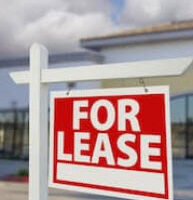What is a Quiet Enjoyment Clause in a Lease Agreement?

In almost every commercial lease, and to some extent, in residential leases, there is a provision called quiet enjoyment. This provision is often overlooked, and many landlords are not even aware what obligations that the provision puts on them, or what can happen when a tenant’s right to quiet enjoyment is breached.
What is Quiet Enjoyment?
As a general rule, quiet enjoyment means two things, one obvious, and one not so obvious.
The less obvious meaning, and the one that comes into play less often, is that the landlord is promising that the landlord owns the property, can lease the property, and that nobody will come along saying the tenant’s property is theirs. Much like selling a home where you warrant that you have good title to convey, quiet enjoyment is a promise that the landlord can lease the property to the tenant.
The more obvious meaning, and where problems arise more often, is in the clause’s promise that, as the name implies, the tenant will be able to use and enjoy the property as intended.
Quiet enjoyment is the landlord’s warranty that the landlord won’t do anything that will materially or substantially interfere with the tenant’s use of the property. In commercial leases, this usually means the tenant’s ability to run and carry on the business as intended.
Breaches of Quiet Enjoyment
The landlord must avoid doing anything that would materially alter the tenant’s ability to do business as intended. For example, the landlord could not eliminate a substantial amount of parking spaces, or do ongoing, long term, loud construction work on a roof (save for necessary repairs). A landlord could not blare loud, intrusive music in a retail space adjacent to the tenant.
A landlord could not hire security that was actively stopping random people, or which was ticketing people for no reason.
The landlord is not responsible for, and thus does not violate quiet enjoyment by things out of the landlord’s control. For example, if the city were to do major construction work on the street outside the tenant’s property, the landlord would not be liable for the loss of the tenant’s enjoyment.
Some courts have found that a tenant does not have to actually stop doing business, move out, or terminate the lease to sue for quiet enjoyment.
Look to the Lease for Protection
In some situations, the landlord can limit liability for quiet enjoyment by putting appropriate language in the lease—for example, language that allows the landlord to do reasonable repairs or maintenance with proper advance notice to the tenant.
Whereas long term or repeated cutoffs of water or electricity would be a breach of quiet enjoyment, a lease can include language that allows for temporary stoppages of these services in certain situations.
A tenant that feels that quiet enjoyment has been violated may not only be able to break a lease, but could also sue for any lost profits to the tenant’s business which are a result of the loss of use of the property.
Let our West Palm Beach commercial litigation lawyers at Pike & Lustig, LLP, help you if you have a problem with your lease or commercial property. Call us at 561-291-8298 to get a consultation.
https://www.turnpikelaw.com/do-you-have-a-right-to-bring-your-service-animal-into-a-business/



